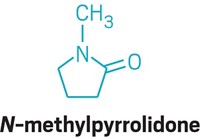Advertisement
Grab your lab coat. Let's get started
Welcome!
Welcome!
Create an account below to get 6 C&EN articles per month, receive newsletters and more - all free.
It seems this is your first time logging in online. Please enter the following information to continue.
As an ACS member you automatically get access to this site. All we need is few more details to create your reading experience.
Not you? Sign in with a different account.
Not you? Sign in with a different account.
ERROR 1
ERROR 1
ERROR 2
ERROR 2
ERROR 2
ERROR 2
ERROR 2
Password and Confirm password must match.
If you have an ACS member number, please enter it here so we can link this account to your membership. (optional)
ERROR 2
ACS values your privacy. By submitting your information, you are gaining access to C&EN and subscribing to our weekly newsletter. We use the information you provide to make your reading experience better, and we will never sell your data to third party members.
Endocrine Disruptors
Court finds flaws in rule on phthalates in children’s products
by Britt E. Erickson
March 5, 2021
| A version of this story appeared in
Volume 99, Issue 8

The US Consumer Product Safety Commission (CPSC) must fix procedural errors in a 2017 rule that restricts five phthalates in toys, teething rings, and other children’s products, a federal appeals court ruled March 1. The restrictions, which limit di-n-hexyl phthalate, di-n-pentyl phthalate, dicyclohexyl phthalate, diisobutyl phthalate, and diisononyl phthalate (DINP) to no more than 0.1% each in such products, will remain in effect while the CPSC makes the changes. The CPSC determined in 2017 that the five phthalates are harmful to male reproductive development. The chemical industry challenged that determination, claiming that typical exposures to DINP do not pose a risk to human health. Manufacturers have since asked the Environmental Protection Agency to evaluate the risks of DINP under the Toxic Substances Control Act. That assessment is ongoing. Under the appeals court ruling, the CPSC must give industry an opportunity to comment on the rationale that the agency used to justify its final rule, which differs from the justification used when it proposed the rule in 2014. The CPSC must also consider the costs to industry of prohibiting DINP in children’s products.




Join the conversation
Contact the reporter
Submit a Letter to the Editor for publication
Engage with us on Twitter